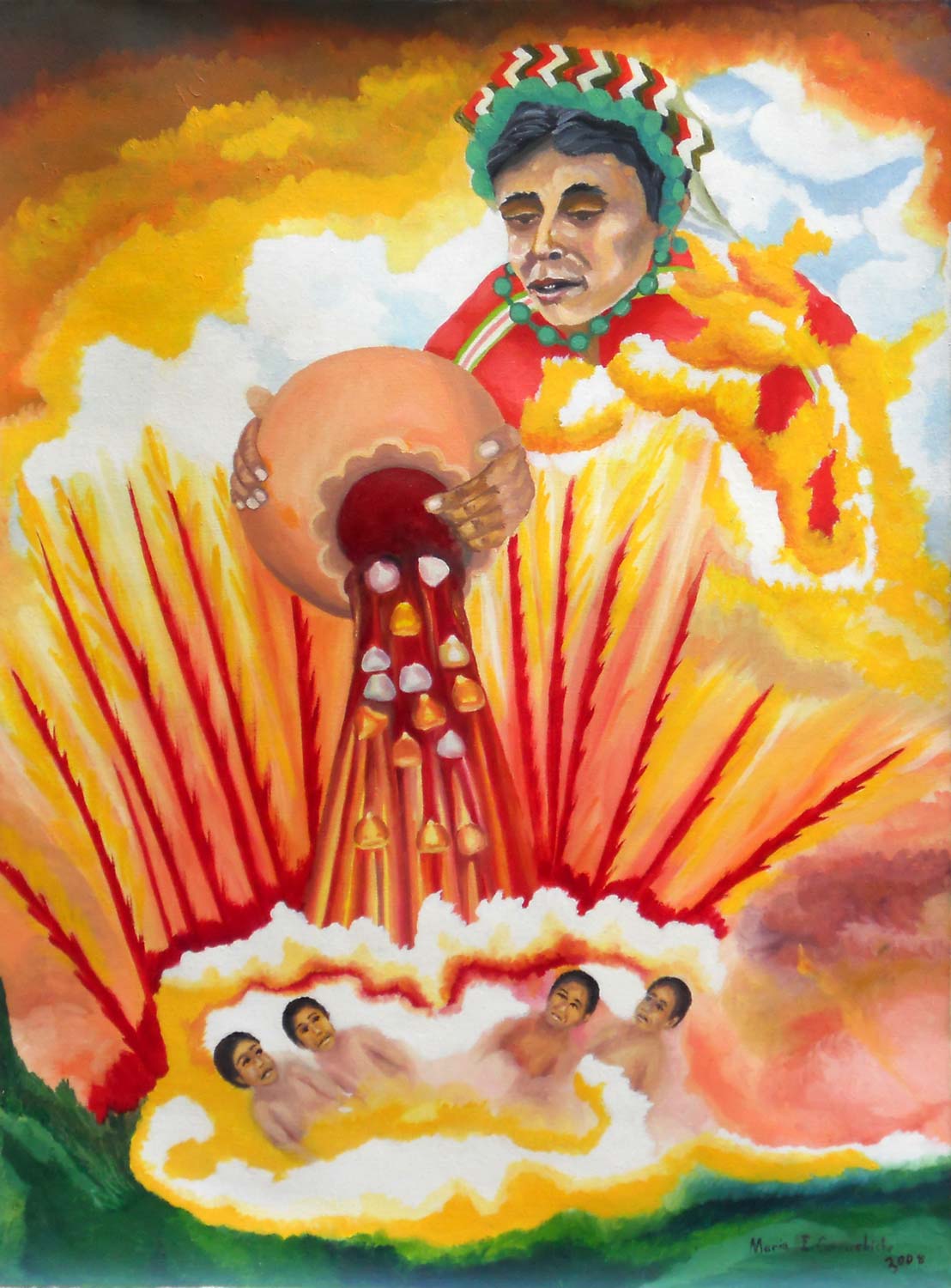The Popol Wuj is considered the holy book of the Maya and tells of the creation of the world. One of the protagonists in this story is Grandmother Xmucane. The K’abawila’ were beings endowed with energies and power, who came from near and far to talk about how to create the earth. After the creation of all the plants and animals, they finally decided to create humanity (Winaq). The K’abawila’ had attempted three times to create people from different materials, but each attempt had failed, and each result was destroyed in turn. Just before the first dawn when light flooded the world, the K’abawila’ created the Winaq, human beings, but lacked a way to nourish them. The animals brought ears of yellow and white corn to the K’abawila’. Grandmother Xmucane ground the yellow and white corn into flour nine times. She formed four men and women out of the cornmeal, forming their arms, legs, and body.
Together, Grandmother Xmucane’, the animals, and the K’abawila’ created Winaq, human beings. In the Maya world, we are all in this together—gods, humans, animals, plants. Although we have different abilities, strengths, and weaknesses, this worldview acknowledges the interconnectivity between all living beings.
Xmucane is the grandmother of Junajpu and Xbalanke, the heroic twin brothers who defeated the Lords of the Underworld (the realm of the dead, Xib’alb’a) and transformed themselves into the sun and moon. When Junajpu and Xbalanke left their grandmother to go to the Xib’alb’a, each of them planted a corn stalk in the patio of her house. They told Xmucane that while the corn was alive, they were alive. If the corn shriveled and died, it would signify that they had died. In their attempt to defeat the Lords of Xib’alb’a, the brothers died but were reborn. The corn stalks in Xmucane’s courtyard shriveled and died; but when the twins were reborn, the corn as well came back to life.
For more information:
Popol Vuh; The Sacred Book of the Ancient Quiché Maya. English version by Delia Goetz and Sylvanus Morley from the Spanish translation by Adrián Recinos. 1950. Norman, OK. University of Oklahoma Press.
Pop Wuj: Libro del Tiempo. Translation from the K’iche Maya by Adrián I. Chávez. Second edition. Ediciones del Sol, Buenos Aires, Argentina.1994.


